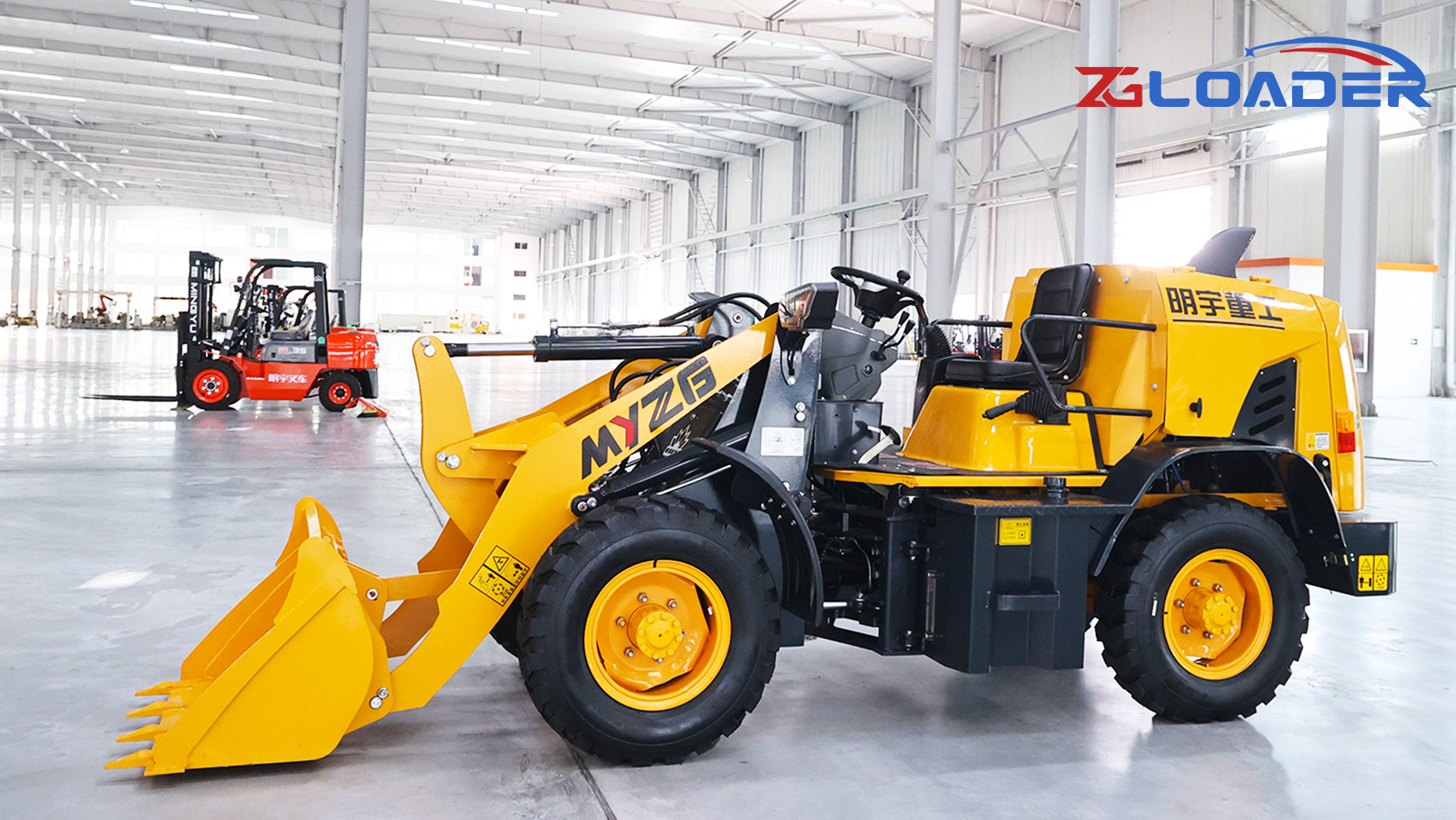1. Vibration and Stress:
Engine Vibration: Diesel engines wheel loader, especially those in heavy-duty applications, generate significant vibration. This constant vibration can cause fatigue cracks to develop in the high-pressure oil pipes, eventually leading to fractures.
Dynamic Loading: The operation of a front end loader involves constant changes in load and direction, subjecting the engine and its components, including the fuel lines, to dynamic loading. These cyclic stresses can weaken the pipe material over time.
Impact Loads: Sudden impacts, such as hitting obstacles or encountering uneven terrain, can generate shock waves that travel through the machine's frame and can cause localized stresses on the fuel lines, potentially leading to fractures.
2. Material Fatigue:Metal Fatigue: Repeated stress cycles can cause microscopic cracks to form and propagate within the metal of the oil pipe. Over time, these cracks can grow and eventually lead to a complete fracture.
Material Properties: The mechanical properties of the pipe material, such as tensile strength, yield strength, and fatigue resistance, play a crucial role in its durability. Using low-quality or improperly heat-treated materials can increase the risk of fractures.
3. Corrosion and Wear:
Fuel Contamination: Diesel fuel can contain impurities such as water, dirt, and sulfur, which can corrode the inner surface of the oil pipe. Corrosion weakens the pipe wall, making it more susceptible to cracking.
Abrasion: The flow of fuel through the pipe can cause abrasion, especially at bends and elbows. This abrasion can gradually thin the pipe wall, increasing the risk of failure.
External Corrosion: Exposure to harsh environmental conditions, such as salt spray, moisture, and extreme temperatures, can accelerate the corrosion process, leading to premature pipe failure.
4. Manufacturing Defects:
Improper Welding: Poor welding techniques, such as inadequate penetration, incomplete fusion, or excessive heat input, can create weak points in the pipe joints, increasing the risk of fractures.
Material Defects: Defects in the pipe material itself, such as inclusions, voids, and cracks, can significantly reduce its strength and increase the likelihood of failure.
Incorrect Installation: Improper installation, such as bending the pipe beyond its allowable radius or using incorrect fittings, can create stress concentrations and increase the risk of fractures.
5. Operating Conditions:Extreme Temperatures: Exposure to extreme temperatures, both hot and cold, can affect the mechanical properties of the pipe material and increase the risk of fatigue and cracking.
High Pressure: Operating the engine at excessively high pressures can increase the stress on the fuel lines, making them more prone to failure.
Fuel Quality: Using low-quality fuel can increase the risk of fuel contamination and corrosion, leading to premature pipe failure.
6. Age and Wear and Tear:
Aging: Over time, the material of the oil pipe can degrade due to factors such as fatigue, corrosion, and exposure to the elements. This degradation can weaken the pipe and increase the risk of fracture.
Wear and Tear: The constant vibration and stress experienced by the oil pipe during operation can lead to gradual wear and tear, which can weaken the pipe wall and increase the risk of failure.
Preventing Fractures in Diesel High-Pressure Oil Pipes
Regular Inspections: Conduct regular visual inspections of the fuel lines for signs of wear, tear, corrosion, or leaks.
Routine Maintenance: Perform regular maintenance checks, including replacing worn or damaged fittings and ensuring proper fuel filtration.
Use High-Quality Components: Use high-quality fuel lines and fittings made from suitable materials, such as stainless steel or high-strength alloys.
Proper Installation: Ensure that the fuel lines are installed correctly, with proper bending radii and secure connections.
Regular Fuel Quality Checks: Use high-quality diesel fuel and regularly check for contamination.
Operator Training: Train operators to recognize the signs of potential problems, such as unusual engine noises or fuel leaks.
Regular Fluid Changes: Regularly change engine fluids and filters to prevent contamination and maintain optimal engine performance.
By understanding the causes of fractures in diesel high-pressure oil pipes and implementing preventive measures, equipment owners and operators can significantly reduce the risk of failures, improve equipment reliability, and enhance overall safety.
Post time:May.06.2021


